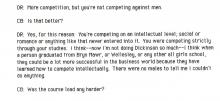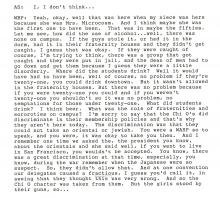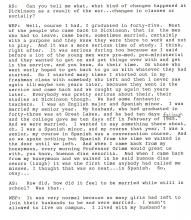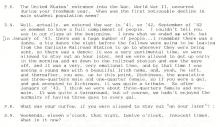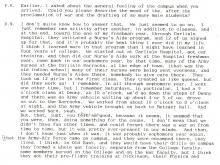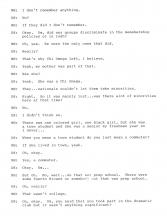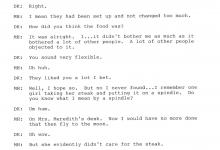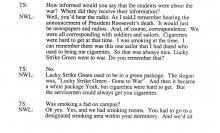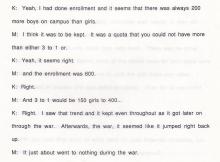Roberts leaves Dickinson for Bryn Mawr during World War II
Dorothy L. Roberts describes her reasons for leaving Dickinson College in an interview. Roberts only attended Dickinson from 1941 until 1943. According to Roberts, the "war really hit our classes" on December 7, 1941. Until that point, Dickinson College had been a heavily male school.

